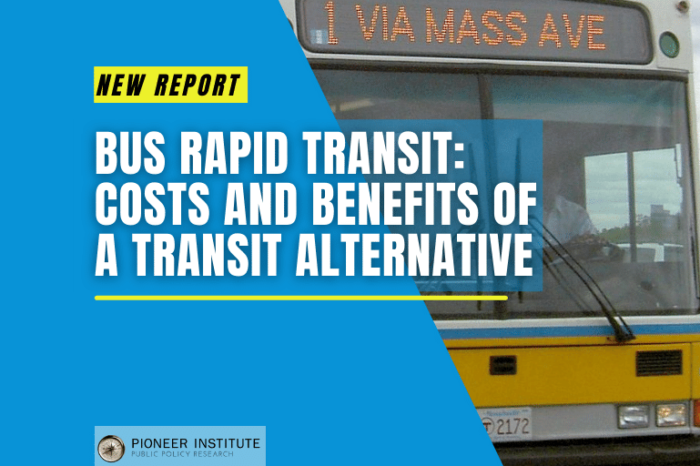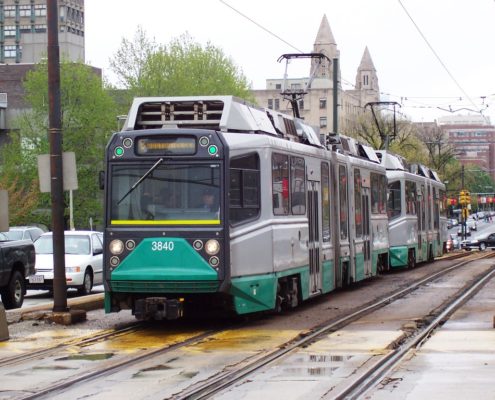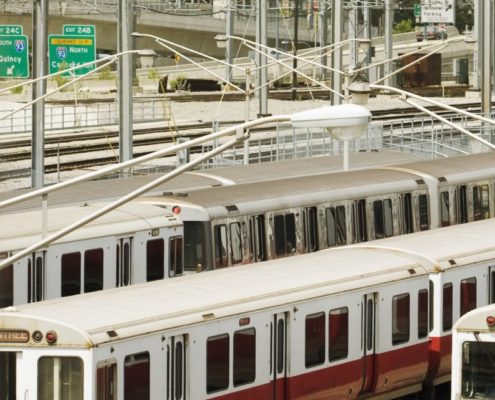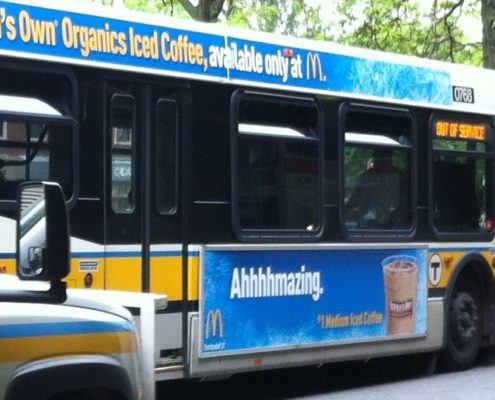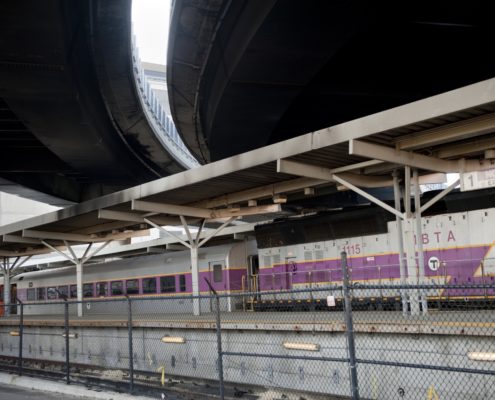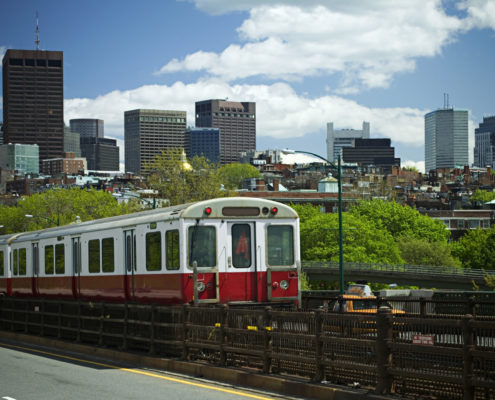Study Finds Bus Rapid Transit Can Offer Cost-Effective Benefits
Successful local pilot programs show BRT merits thoughtful expansion
BOSTON – Bus rapid transit (BRT) incorporates unique features such as dedicated lanes to provide reliable and cost-effective service while reducing congestion and its detrimental environmental impacts, according to a new study published by Pioneer Institute.
BRT includes many features normally associated with subways, such as boarding platforms at the same level as the vehicle, automated fare collection, bus stations with turnstiles or fare gates, faster boarding, and priority in traffic. In Brazil, the cost of assembling one BRT system was 50 times less than building a new subway system.
“Three Boston-area pilot projects that incorporate BRT features on existing bus routes reinforce the idea that this is a promising approach that should be expanded,” said Ian Ollis, co-author of “Bus Rapid Transit: Costs and Benefits of a Transit Alternative.”
After queue jumping, a practice where buses receive advanced green lights from the boarding lane at traffic signals between 6 am and 9 am weekdays, a dedicated lane was added to the route along Massachusetts Avenue between Arlington and Porter Square in Cambridge. As a result, there was 64 percent less variance against the timetable and commutes were shortened by an average of 10 percent. Fifty-eight percent of residents supported extending the route and 70 percent supported making the changes permanent.
Along the 71 and 73 bus routes in Cambridge and Watertown, only 3 percent of the vehicles on the road are publicly operated, but six out of ten commuters on the route ride those vehicles. When bus lanes and signal timing were added, variance against the timetable dropped by 69 percent and the percentage of residents who approved of Mt. Auburn Street traffic patterns rose by 38 points.
The most ambitious pilot is in Everett, which added a 1.1-mile bus lane along Broadway, as well as first-step level boarding platforms that eliminate one step for boarding buses. Sixty percent of residents are satisfied with the lane and 77 percent want it to continue to Sullivan Square.
All three communities have made the changes permanent, and Everett Mayor Carlo DeMaria has set a goal of having full BRT in Everett by 2023.
In its 2019 final report, the Lower Mystic Regional Working Group, which was assembled by the Massachusetts Department of Transportation to support new transportation interventions for redevelopment, called for more BRT, finding that changes associated with BRT are faster to implement than other options, reduce automobile traffic, and promote transit equity.
In Cleveland, the 6.9-mile HealthLine was declared to have the most return on investment of any transit project by the Institute for Transportation and Development Policy, which has created a set of BRT standards. One study found that two thirds of the jobs created in Cuyahoga County, which includes Cleveland, are located within a block of a HealthLine station.
Ollis and co-author Collin Quigley noted that compromises are often needed to balance competing interests and gain community support. They note that the bus lanes along Broadway in Everett are only used during peak hours, with the space used for parking at other times.
About the Authors
Collin M. Quigley is a 2020 graduate of Boston College, where he graduated Magna Cum Laude with the highest honors in Political Science. His thesis “For Themselves and For Their Children: The Political Challenges, Nuance, and Triumphs of Eastern Kentucky’s Schools” earned him a Scholar of the College designation and the Donald R. Carlisle Award for top graduate in the Department of Political Science.
Ian Ollis took up the position as Fredericksburg Area Metropolitan Planning Organization (FAMPO) administrator in November 2020 and also directs rural transportation for the George Washington Regional Commission (GWRC). Mr. Ollis was born and schooled in South Africa. Prior careers include a substantial political career in local and national government in South Africa, ownership of a real estate company, and a director of an IT company. He is an MIT graduate, with a master’s degree in city planning, specializing in transportation, and has worked at both Pioneer Institute and Transit Matters.
About Pioneer
Pioneer’s mission is to develop and communicate dynamic ideas that advance prosperity and a vibrant civic life in Massachusetts and beyond. Pioneer’s vision of success is a state and nation where our people can prosper and our society thrive because we enjoy world-class options in education, healthcare, transportation and economic opportunity, and where our government is limited, accountable and transparent. Pioneer values an America where our citizenry is well-educated and willing to test our beliefs based on facts and the free exchange of ideas, and committed to liberty, personal responsibility, and free enterprise.
Get Updates on Our Transportation Research
Related Posts

